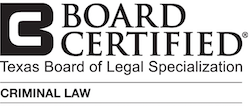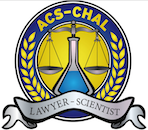Chris Youngkin - Texas DPS Lab Analyst
I am currently writing this at a DWI Seminar where a speaker is presenting on what transpired in DWI blood test cases and the quagmire ensued with the “switching of the vials” scandal in DFW that occurred around October of last year (2016). You can read plenty on the specific nuances of what happened by simply googling “Chris Youngkin” or some variation of his name, but one of the main articles can be found here:
https://www.dallasnews.com/news/crime/2016/10/14/thousands-dwi-cases-potentially-risk-credibility-dps-lab-expert-questioned
The gist of what happened is whether Youngkin may have given conflicting testimony under oath about a 2013 lab error in which he mixed up the results of two blood samples submitted by the Anna Police Department. Youngkin was the main DPS analyst who was in charge of the main lab in the Dallas-Fort Worth Metroplex who tests blood results in DWI cases. He had tested literally thousands upon thousands of blood specimens, and was the main analyst charged with the majority of the samples to obtain the Blood-Alcohol Concentration (“BAC”) levels. His job was to do this in order to sponsor these results by testifying in trials in DWI cases.
I have achieved the ACS-CHAL Forensic Lawyer-Scientist designation, by completing the coursework and passing the required proficiency examination Axion Analytical Labs in Chicago. The ACS-CHAL Forensic Lawyer-Scientist Designations is the highest form of scientific recognition a DWI/DUI defense attorney can receive. My profile can be found at the link here:
http://www.forensicchromatography.com/acs-chal-forensic-lawyer-scientist-carl-david-ceder-from-texas/
Axion provides tremendous insight into many aspects of forensic science, and the course in Forensic Chromatography is, without a doubt, the "mecca" where you go to learn the underlying theory behind Gas Chromatography (which is the way that blood is tested in DWI cases). In the courses, students not only see and utilize the same instruments used in forensic labs in criminal cases, but also learn to actually run tests and obtain lab results (just as they do, for example, when testing blood in DWI cases).
During the 2015 course on Gas Chromatography courses I attended (I attended this course twice, once in 2015, and again in 2017), I remember asking Dr. Lee Polite a question that came to light to me as I was be taught some of the underlying technique and theory for how blood is tested in DWI cases. His response (while noting this occurred well before the "Youngkin" scenario occurred in 2016) is obviously incredibly relevant now. I asked him, "aside from pre-lab errors that occur with blood (how the blood kit is stored before the draw, how the blood is drawn, how it is stored after the draw, chain of custody issues with the sample, etc. – the list for how many errors for this are too numerous to mention, and outside the scope of this article), what did he think the biggest single source of potential error that can occur at the lab where blood is tested?" I remember, and again this was before the "Youngkin" scandal, he mentioned he felt the biggest potential source of error (while noting it would be impossible to account for how many times this actually happened), was the very real and possible likelihood of mixing up samples at the lab when preparing and actually conducting the sample for testing.
It should be noted that Dr. Polite is the head of an INDEPENDENT lab at Axion. This is especially relevant, in that in Texas – the labs that test blood in DWI cases are overseen by the Texas Department of Public Safety (“DPS”) – which obviously is not an independent lab, but instead, is a lab that is completely run and operated exclusively by the government. Why is this a problem? For starters, DPS is the main entity that profits very much from DPS surcharges that are imposed if a conviction results following a DWI arrest. Possible conflict? ABSOLUTELY!
In addition, most experts in the field would agree that for forensic lab results to be reliable, it should be run by an independent lab, with no skin in the game, so to speak, with regards to the outcome and any results obtained. This way - any problems with procedure, quality control, etc. would be something that would be regulated by the lab itself - much like with a private business (i.e. FedEx v. U.S. Postal Service). If this were the case, they would not be affected by admitting when mistakes do occur, and they would be more likely to test itself against possible error to prevent its reoccurrence.
It should go without mentioning this should be the case, especially with something so important as testing blood in DWI cases where the ramifications can be steep and could include a multitude of possible negative ramifications. People face possible jail time, convictions that last a lifetime, suspensions of driving privileges, possibly being convicted felons for life (with cases where it is a DWI-3rd or more, intoxication assault or manslaughter cases, or a charge of DWI with Child Passenger).
Aside from this, I remember Dr. Polite said that he thought akin to this, a huge source of potential error would occur (assuming the blood does get transported to the lab in a proper fashion), is how the person who usually prepares the blood sample for testing, is almost never the actual head analyst, but usually someone that is relatively low on the totem pole working at the lab. This is the case, he noted, in any forensic laboratory (whether operated independently or by the government), because in large part this is very much "grunt" work.
Therefore, the person who is actually handling and preparing the blood samples for testing, (labeling them with a specific number, crimping the vials, mixing in the required internal standard, placing them on the autosampler, etc), and ensuring the overall quality control methods are in place to ensure that every sample is not mixed with another, is a person that is perhaps the least qualified, and quite possibly the least interested, person working in the entire lab.
He said the potential for this person to mix a sample with another, or doing something that would result in possible error with the sample, happens all the time. This is why it is crucial to have another individual checking this person's work as an oversight for overall accuracy and quality control. I remember he said even in an independent lab this happens with relative frequency. Why? Because usually around 30-40 samples are tested with each batch “run” – and each vial has to be taken from one place to another, usually multiple times, correctly associated with the name and a“GAR” number, properly prepared with an internal standard, and many other procedures and steps integral to ensuring the integrity in the test result obtained.
He remarked that even with independent labs, mixing samples happens frequently. It is natural. Why? Because people are human, and as humans - it is inherent that we make mistakes. In fact, it is only logical in this context given what needs to be done when testing blood for the amount of ethanol contained, how many samples need to be prepared, and the timing with which it usually needs to occur. It's simply human error – and usually not something that is intentionally done. Hundreds, if not thousands are conducted in a single day, and in any given week the number of samples tested is usually a very large number. Even though with an independent lab mixing of the samples occurs with relative frequency, according to Dr. Polite, he did remark the likelihood of this skewing overall data output is low because they have the resources to try and limit this from occurring. To try and ensure the accuracy of results tested, he mentioned they usually have another individual conducting quality control checks to limit any possible error in this regard. Even still, he said, simply put, mistakes and errors can happen, and 100% do occur.
Now, going back to how blood is tested in Texas by DPS – a government lab, that no doubt is operated and run on a very tight fiscal budget. He mentioned (again, this was before the "Youngkin" scenario), he said he thought the biggest single source of error that could occur in any lab, but especially in a government lab, is samples being switched or mixed up – albeit inadvertently. He said if it happens in an independent lab – the potential rate of error for this occurring has to occur at a much higher rate with a lab operated by the government. Why? Because anything the government runs usually is run on a very tight budget – and he mentioned no doubt the person who is preparing and handling all the vials and samples before testing is probably kept on a strict timeline to ensure these tests are done as quickly, and as cheaply, as possible. It is also doubtful that a government operated lab would allow for the additional expenditure to pay anyone else to ensure quality control methods are in place.
It should be noted there are two ways blood can be tested at a lab for trying to determine amounts of ethanol in a sample. One way he referred to as the "Henry Ford" method. In this scenario, it would be a situation where multiple people would be working similar to that of an assembly line, all assigned to various tasks needed to be done for the entire process (from when the sample is first delivered to the lab, to preparing it for testing, and then obtaining and interpreting a result).
The other method would be the "all-in-one" method, which virtually is a scenario where the same (usually a very tired) analyst does all of the sample preparation, handling of every sample, logging and making all the proper written notations, while also spending the requisite period of time to actually test and interpret all results obtained. Obviously, this would bean inundating process.
In the "Henry Ford" scenario - where many people may be involved in the process, definitely has its pros - because it limits the possible error resulting from any carelessness (albeit even if inadvertent) of an analyst who is simply overworked. However, it's also true that when too many cooks are in the kitchen - mistakes can be even more prevalent. So both have their drawbacks and significant cause for concern.
What I thought the most poignant, however – was what he said about “why” the mixing/switching of the samples occurs. He said even at an independent lab, and this certainly applies at a government lab, the person who is doing all the aforementioned work in preparing the blood samples for testing, as stated above - is not the "head honcho" who runs and operates the lab. In fact, often the main individual operating the lab is NOT even the one doing the actual testing. In his own words, the person preparing the samples, and doing all the “grunt” work preparing all the samples, usually is the person working at the lab on the lowest rung. I remember him saying that it would not be unheard of for it to be some 20-year old college student, who may be taking a chemistry class in college, who is tasked (with perhaps the most important job of all) to prepare all samples for testing.
He noted even in his own lab this is where he finds the most potential source of error. He strongly emphasized how absolutely imperative it is for the person preparing the samples adequately provide precise care and attention to the minutiae of each item tested. Otherwise, the entire integrity of all samples tested and the results obtained is questionable
If this is the case for an independent lab – how true would it be for a lab run entirely and completely by the government? I remember him remarking that almost certainly DPS puts a lot of pressure on these individuals to prepare as many vials/samples as possible, because often government entities place quantity over quality (again think FedEx v. U.S. Postal Service).
Good business practice? Maybe. Good for the reliability of testing each sample? Not even close. Putting pressure on these individuals to test more samples, in less time, and in a hurry – simply put, will lead to error. It may not lead to error in EVERY case, but almost certainly will in some cases. The fact that this concern exists for some unknown individual, for me, is a staggering thought.
As the "Youngkin" scandal unfolded, I couldn't help but remember the words and thoughts of Dr. Polite on this subject. It was almost like he was a prophet when answering my question, because this is exactly what occurred here.
I personally had the opportunity to cross-examine Mr. Youngkin at least a dozen times in trials, and I honestly I thought he was a decent and honest witness. However, I remember each time he showed up for trial (which occurred more times that I actually had him testify – because not every trial actually proceeds for various reasons, but he still had to show up for all of those that did not end up occurring), he seemed tired, exhausted, and overworked. I remember once asking him when did he have time to sleep - between testing the volume of samples of blood he was tasked to perform, while also being required to appear incredibly often to testify in countless DWI trials around the DFW Metroplex? I didn't intend for my question to be taken by him in a derogatory manner, it was just incredibly evident every time I encountered him at court that he seemed tired, worn out, overworked, and stressed. If this is the case...and obviously it was, how would the fact that he was overworked possibly lead to? Mistakes. Errors. Even if unintentional – but still mistakes and errors.
I remember often wondering how he managed showing up in order to possibly testify in all of the trials he had just for me (I am only one attorney, keep in mind, he had to do the same for countless other attorneys and cases around the Dallas-Fort Worth Metroplex). Mr. Youngkin was caught in a situation where he was forced to admit that he switched a sample for an individual, and a multitude of negative events unfolded around him and his career as a result of the proceedings that transpired.
Even though this was one sample, it begs the question – how many other samples has this happened to? How many other individuals have had incorrect results obtained, and their blood test results been completely wrong? I found it a bit interesting that Dr. Polite predicted this over two ago, well before the "Youngkin" scandal transpired. I remember thinking after he explained it – how it made complete sense.
However, even though it made perfect sense to me, especially after completing the course and learning all of the different steps, procedures, and measures which have to occur before a blood sample is tested, I felt a bit frustrated in trying to figure out the best way to convey this to a lay 3rd-party individual. I felt frustrated knowing it would be very difficult, if not impossible, to communicate this potential problem to a jury in trials where I suspect it may have occurred.
My hope now is many people from the general public hopefully followed this story, and what transpired, and in doing so, it enlightened them on just how easy it is for mistakes to happen – and how there is no just “trust me” with science and with any forensic testing. Evidence used in criminal cases have too much at stake for the results to have any possible reason to lead one to believe the results may be erroneous.
After the "Youngkin" scandal, I've had cases, or have heard of other situations where something similar has happened, where at least four other “Brady” notices – where various lab analysts who test blood samples in DWI cases have now confirmed various situations where certain samples have been switched and/or mistaken for tests they done themselves. Usually, when given the "Brady" notice by the prosecutor, it usually is accompanied with a caveat as to how “this was a one-time occurrence, and an isolated incident” - and how they have no reason to believe this occurred with any other test outside of the one disclosed. Really? One time? Just once? C'mon.
It's time for honesty and transparency with how blood is tested in DWI cases in Texas. The only possible and pragmatic solution would be to outsource the entire process and have an independent lab conduct all DWI blood testing in Texas after an arrest. Now that other analysts are coming forward, coincidentally just after one individual was caught with egg on his face as a result of this complete and utter debacle, it has at the very least confirmed now that multiple mistakes have occurred in switching samples/vials. It would seem then this would be a ripe opportunity to institute change to the entire method for DWI blood testing in Texas. It seems obvious, at least to me, the other analysts that have come forward and admitted mistakes with samples, most likely have done so simply to try and avoid the same possible fate as what happened with Youngkin.
The bottom line is this – switching blood samples happen in DWI cases in Texas. Why? Because the testing is conducted by a government operated lab, and an integral person who physically handles and prepares the samples is usually not the head lab analyst, but instead usually is done by individuals hired with minimal experience and training, and who likely receive little to no oversight with the quality of their work.
And if this is not the case - then for me, the alternative is even more frightening. ONe person can only do so much. Overworking an individual with too many tasks (as I believe Youngkin was) will lead to someone being tired, and more prone to mistakes.
Regardless, these individuals likely face constant pressure to churn out the most results possible, and in the quickest and cheapest way. As a result, it is natural to assume then mistakes will happen, because human error is something that cannot be avoided.
While I am not personally happy with what happened to Mr. Chris Youngkin, to his career, to his reputation, etc. – because personally I thought he was a truthful witness on the stand, and a likeable individual overall – I am, however, pleased this situation came to light because it clearly sheds light on potential problems with how blood is tested in DWI cases in Texas.
The scenario that did occur was exactly what Dr. Polite depicted and illustrated when I asked in his opinion, from his personal and professional perspective, what the biggest possible source of error that might occur in a blood sample once it arrives at the lab for testing is? At the very least, it should be obvious that when the life, liberty, reputation, and the very freedom of an individual is on the line – this information, and the inherent problems therein, should be known, discussed, and steps applied to hopefully circumvent.
It should be cause for great concern for the overall certainty, reliability, and accuracy for how all blood is tested in DWI cases in Texas. It should serve as a centerpiece that it's clear we should not carry on in the future and act as though this problem doesn't exist, that it hasn't been a problem in the past, and how it very much will be a problem well into the future if something doesn't change.
After all, the saying is true - "those that do not learn from the past are doomed to repeat it." If this is the case, I shudder to think about being the individual accused of a DWI, who has a sample of their blood mixed with another when tested at a lab, and the mistake and its occurrence going completely unknown and undetected. The stark reality is this 100% will be the case without significant change going forward in the future, in order for the Youngkin scenario to not duplicate itself yet again in some way down the road.






















